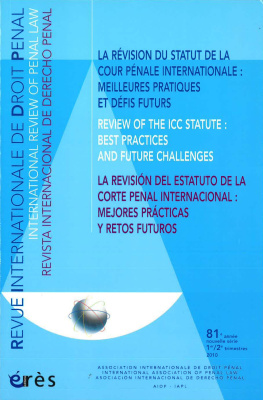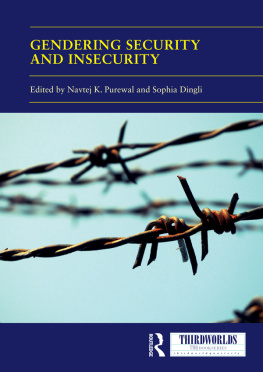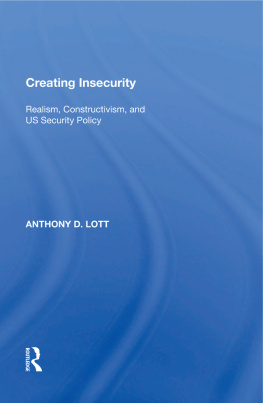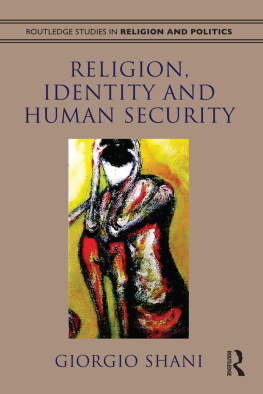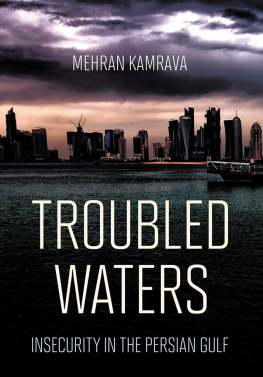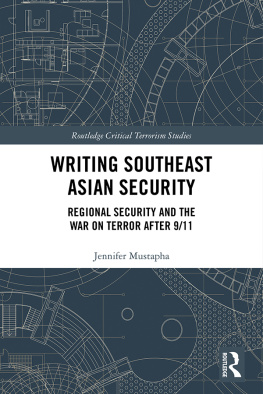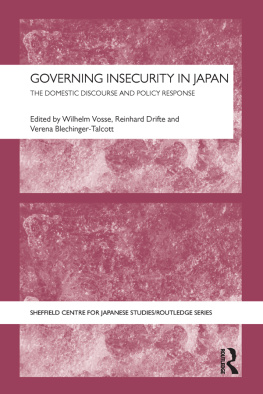Thank you for buying this ebook, published by NYU Press.
Sign up for our e-newsletters to receive information about forthcoming books, special discounts, and more!
Sign Up!
About NYU Press
A publisher of original scholarship since its founding in 1916, New York University Press Produces more than 100 new books each year, with a backlist of 3,000 titles in print. Working across the humanities and social sciences, NYU Press has award-winning lists in sociology, law, cultural and American studies, religion, American history, anthropology, politics, criminology, media and communication, literary studies, and psychology.
RHETORICS OF INSECURITY
Rhetorics of Insecurity
BELONGING AND VIOLENCE IN THE NEOLIBERAL ERA
Edited by Zeynep Gambetti and Marcial Godoy-Anativia

NEW YORK UNIVERSITY PRESS
New York and London
www.nyupress.org
2013 by Social Science Research Council
All rights reserved
Library of Congress Cataloging-in-Publication Data
Rhetorics of insecurity : belonging and violence in the neoliberal era/
edited by Zeynep Gambetti and Marcial Godoy-Anativia.
pages cm
A joint publication of the Social Science Research Council and New York University Press.
Includes bibliographical references and index.
ISBN 978-0-8147-0843-9 (cl : alk. paper)
1. Security (Psychology) 2. Security, International. 3. Violence.
4. Neoliberalism. I. Gambetti, Zeynep editor of compilation.
II. Godoy-Anativia, Marcial editor of compilation. III. Social Science Research Council (U.S.)
BF575.S35R36 2013
155.9dc23
2013001058
New York University Press books are printed on acid-free paper, and their binding materials are chosen for strength and durability. We strive to use environmentally responsible suppliers and materials to the greatest extent possible in publishing our books.
Manufactured in the United States of America
C 10 9 8 7 6 5 4 3 2 1
P 10 9 8 7 6 5 4 3 2 1
References to Internet websites (URLs) were accurate at the time of writing. Neither the author nor New York University Press is responsible for URLs that may have expired or changed since the manuscript was prepared.
To Hrant Dink, who dared to speak up in an insecure world
Contents
Zeynep Gambetti and Marcial Godoy-Anativia
Anna Lowenhaupt Tsing
Peter Geschiere
Stephen Jackson
Yasemin Ipek Can
Zeynep Gambetti
Nandini Sundar
Georgi M. Derluguian
Rossana Reguillo Cruz
Nicholas De Genova
Acknowledgments
This volume is the long-simmered result of a very interesting conversation that emerged among the regional programsthe Ford Foundationfunded Regional Advisory Panels (RAPS)at the Social Science Research Council (SSRC) in the late 1990s and early 2000s. At the time, there was a fantastic architecture of area-based regional programs that were profoundly internationalized through the RAPS and the dense networks of scholars, from both North and South, that they brought to the table. This architecture allowed for and encouraged cross-pollinization between area programs, and its program directors consistently sought opportunities to create dialogue and collaboration across these deeply internationalized bodies of regional expertise. The contributions to this volume were initially commissioned for our 2007 workshop entitled Citizenship, Securitization and Vernacular Violence, which took place at Boazii University Department of Political Science and International Relations, in Istanbul, Turkey, January 2627, 2007, and which convened a group of scholars drawn from the networks of the Latin America, Middle East/North Africa, South Asia, Southeast Asia, and Africa Programs at the SSRC. The Istanbul workshop was a follow-up to the April 2005 meeting convened by the Regional Programs, Belonging, the Crisis of Citizenship and the Nation State in Dakar, Senegal, and on the Social Inequalities and Conflict meeting convened later that year in Bogota, Colombia. Each of these convenings sought to focus inquiry on different dimensions of citizenship and belonging in a postCold War, neoliberalized planet. In particular, the January 2007 workshop in Istanbul sought to advance the SSRCs work on the relationship between the production of different types of localized conflict and violence, and various processes at the global level.
We are deeply indebted to program directors Seteney Shami, Eric Hershberg, Alcinda Honwana, Itty Abraham, and Ronald Kassimir for their investment in and enthusiasm for this work, as well as to the members of the Regional Advisory Panels and SSRC Regional Programs staff. We are also indebted to Stephen Jackson, then deputy director of the SSRCs Conflict Prevention and Peace Forum, who played a key role in keeping these conversations going at key moments, and would also like to thank Peter Sahlins, then director of Academic Programs at the Council, who was crucial in making the Istanbul workshop a reality. We thank all the contributors to this volume for their intellectual energy, generosity, and patience, but especially Rossana Reguillo and Peter Geschiere for their support and guidance throughout the process. Many thanks are due to the Department of Political Science and International Relations at Boazii University, the Hewlett Foundation, and the Ford Foundation. We are also indebted to Craig Calhoun, Seteney Shami, Alyson Metzger, and Michael Simon of the SSRC for their unswerving faith in the project as well as for their invaluable help in materializing it.
Special thanks also go to Yasemin Ipek Can, who not only contributed a paper to the volume but also shouldered the logistics of the 2007 workshop. Political Science and International Relations Department students whose diligence and generous smiles won the hearts of workshop participants also deserve recognition here: Volkan Yilmaz, Zuleyha Demirok, Lisya Yafet, and Samil Can.
Finally, we would like to honor the memory of Paul Price, former editorial director at the SSRC. Price was enthusiastic about reviving the project after a long slumber and presenting the manuscript to New York University Press in 2011. We were immensely saddened to hear that he passed away before seeing the published volume.
RHETORICS OF INSECURITY
INTRODUCTION
States of (In)security: Coming to Terms with an Erratic Terrain
Zeynep Gambetti and Marcial Godoy-Anativia
The twenty-first century started off by undoing the promise of a New World Order. Announced by George Bush Sr. in the 1990s, the new order was expected to involve a multipolar world in which human rights, democracy, and peace would prevail. The one that is being delivered instead seems set to undermine the universality of rights and the legitimacy and desirability of popular rule. War, social strife, and structural violence are still haunting the planet. But so are protests that no longer take the visionary paths offered by a century and a half of working-class struggle. Occupy groups and the indignados of numerous countries are more anarchic than orderly, more spontaneous and local than any International can encompass. This double movement away from order elevates the categories of risk (Beck), control (Deleuze), precarity (Butler), thanatopolitics (Bauman, Mbembe), or state of exception (Agamben) to the level of ordinariness. In line with the dissolution of previous certainties, security seems to have become a preoccupying concern. In the words of one of its most vocal theorists, the ending of the Cold War has created a remarkable fluidity and openness in the whole pattern and quality of international relations (Buzan 1991: 432). Corresponding to the ambiguity that marks the dissolution of former institutional and material structures, security now takes on unexpected twists and instigates novel practices.
Next page



